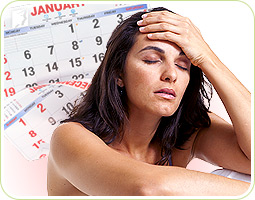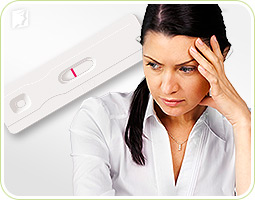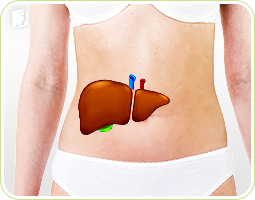
Most women at some point in their lives have experienced an early periods. This is normal among girls beginning menstruation and women ending it, but there are other factors that can play a role it its cause. If menstrual cycles are close together for more than two cycles or if they are accompanied by abnormally heavy bleeding, contact a health professional.
Most women will probably suffer early menstrual periods at some point in their lifetime. A woman's life can be significantly disturbed by early menstrual periods, and it can even get worse if not given the necessary attention. Therefore, take your time to read the article below in which you'll find useful and important information about early menstrual periods.
Reasons for an early menstrual period, irregular, missed or too frequent periods are usually benign. The irregularity in menstrual cycle is commonly caused by hormonal imbalance which fortunately, is treatable.
About Early Periods
A woman's menstrual cycle usually lasts 25 to 35 days, but sometimes a period can arrive earlier than usual. If menstrual bleeding happens in 21 days or fewer, then it is classified as an early period. This is a very common situation and many women experience a shortened cycle at some point during their lifetimes.
Early periods can have a variety of causes, but in some cases the presence of early bleeding might not actually be a period, but related to pregnancy. Continue reading to learn more about the difference between early periods and pregnancy.
Early Periods and Pregnancy
If a woman notices that she is bleeding earlier than her usual menstrual cycle, then there is a chance the bleeding is a sign of early pregnancy.It is part of a process called implantation, which is one of the first stages of pregnancy; sometimes during this process a little blood will leak into the uterus and come out in small amounts. This is called implantation bleeding, that is common for many women and it not dangerous.

It is possible to differentiate an implantation bleeding of an early period because implantation bleeding occurs only a few days after ovulation and fertilization. Furthermore, the amount of the implantation bleeding is small enough that it is considered spotting. Sexually-active women of child-bearing age who experience bleeding outside of their menstrual cycle should obtain a pregnancy test to be sure whether it is an early period or implantation bleeding.
If there is no chance of pregnancy, early bleeding can be caused by separate issues. Continue reading to learn more about the causes of early periods.
Types of Irregular Periods
- Infrequent or too frequent periods
- Missed periods
- Changes in blood flow
- Blood clots larger than an inch (2.5 cm) in diameter
Early Periods Causes
Several factors can cause irregular periods, but it is possible to divide them in two categories: physical causes and lifestyle causes.
Physical causes
One of the most likely causes is fluctuating hormonal levels experienced typically during puberty and when woman is approaching menopause. Hormones like estrogen and progesterone have a definite effect on the menstruation since they regulate ovulation during the menstrual cycle. Without a balanced level of these hormones in their bodies, women are unable to properly ovulate experience abnormal (anovulatory) menstruation that will lead to irregular menstrual periods, such as early periods.

Although hormonal imbalance is the primary causes of early periods, there are other lifestyle triggers and health conditions that can causes them, such as polycystic ovary syndrome (POS), uterine abnormalities, recent birth, miscarriage, breastfeeding, liver disease, diabetes, cancer, anemia and thyroid disorders.
Triggers
Stress. If a person is stressed, then the body releases hormones that can interrupt the hormonal balance in the female reproductive system, causing interruptions in the menstrual cycle.
Poor nutrition, intense exercise or extreme changes in weight. All three of these factors cause physical stress to the body's systems, which can upset the hormonal balance responsible for the menstrual cycle.
Caffeine. In some women, too much caffeine can stimulate the production of extra estrogen, which can cause a period to come early.
Excessive smoking, drug, and alcohol abuse. These unhealthy habits may disrupt the menstrual cycle.
Some medications, such as birth control can cause a period to arrive early period.
Depending upon the causes, early periods can affect fertility in some cases. Keep reading to learn more about early periods and fertility.
Early Periods and Fertility
Many women wonder about their fertility when they begin to experience irregular periods. Generally, the presence of an occasional early period is not related to fertility problems, but if irregularity that lasts for several months or more can be a symptom of something else that may affect fertility. For example, polycystic ovary syndrome is a condition that can lead to infertility if improperly treated. If a woman is experiencing early periods consistently, then it is very important to seek medical attention to identify whether a related condition exists and start treatment.
For women who are approaching menopause, it is important to remember during this time, even if a woman's period is irregular, it is still possible to get pregnant.
In all cases, irregular periods can be uncomfortable or embarrassing in addition to being a possible sign of another medical condition. However, there are several treatment options available. Continue reading to learn more about early periods treatments.
Early Periods Treatments

The most important thing to get the right treatment for early menstrual periods is to find out the real cause of the problem. If periods are arriving early due to lifestyle causes then it is important to find ways to lead a healthy lifestyle, including good nutrition, and moderate exercise. Release tension and de-stress incorporating relaxation and enjoyable activities regularly can also help the menstrual cycle right itself.
If early periods are related to a physical cause, alternative medicines and treatments which address the hormonal imbalance at the source are the most effective method of treatment, especially when implemented with the first option -lifestyle changes-.
Most experts recommend a combination of lifestyle changes and alternative medicine as a safe and effective way of treating early periods. Click the following link to read a complete and useful list of treatments for early periods.
Sources
- BMJ Group. "Menopause: What is it?" Patient Leaflet. 2007.
- Hopkins, Virginia. Lee, John R. M.D. What Your Doctor May Not Tell You About Menopause. New York: Warner Books Inc., 1996.
- Love, Susan M.D. Menopause and Hormone Book. New York: Three Rivers Press, 2003.
- Martin, Raquel. The Estrogen Alternative. Rochester, VT: Healing Arts Press, 2000.
